Q&A with Kath Crawford of Flossie’s Kitten Rescue
Kath Crawford has been fostering cats for her entire adult life, but it was six years ago when she had to leave her job in the public service after falling ill that she decided to make fostering kittens a fulltime pursuit and launched Flossie’s Kitten Rescue.
Flossie’s is entirely self-funded and after starting in Kath’s loungeroom with just six cats it can now support up to 30 cats at any time and is based out of her garage which has been converted into a cat’s paradise.
Kitten rescues like Flossie’s have come about as a response to the large number of cats in Canberra that need a home, including unwanted or orphaned kittens.
Q. Where do the cats at Flossie’s come from?
Some get handed to the vet by members of the public and the vet will call me and if I have room I’ll take them and if I don’t they’ll go to the RSPCA. Sometimes the RSPCA will refer people to me and sometimes people contact me directly on the Facebook page because they’ve found cats or something has happened to them and they want to surrender cats.
Q. Do you have a team of volunteers that help you out?
We have four regulars at the moment. We get a lot of Uni students which is great, but we do lose some of them when they have exams and then go home over the long summer break, which also happens to coincide with kitten season, the busiest time of the year. Every now and then I will put a call out for volunteers and we always get more than we can use, so it’s pretty easy to get new volunteers.
Q. How long do cats spend at Flossie’s before they are adopted?
We have five forever cats that we’ve had since they were kittens and we haven’t added to that in 8 years. We don’t want any more forever pets, so it is not our intention to keep any of these cats. We’re not an end point, we want to be like a holding bay, a safe haven while they need it and then get them into homes, and we’ve got a great track record of that. Some of the adults that aren’t well socialised when they come in might be here for a year or two, we’ve had that happen and then we’ve found them homes and it’s worked really well, it just takes the time it takes.
Q. What is the government doing to limit the number of stray cats?
The Barr government has introduced excellent animal welfare legislation, it’s really good, it’s just not being enforced. The legislation is great, and the politicians are saying all the right things but there’s very little follow through. You have to microchip your animals; how are they going to tell if you have or not? You’re meant to desex your animals, you’re meant to have a breeder’s license to sell kittens online. None of it gets enforced.
Q. How could they go about ensuring the number of cats in Canberra doesn’t continue to grow?
If you have a colony of cats in an urban setting and you swoop in and take away all the cats and kill them (Editor’s note: this is the government’s current policy) what happens is the semi-stray cats will move into that area. The ones that had been living on the outside of the colony and been kept away by the alpha cats just move in. It’s fresh blood, and they breed like nobody’s business and you end up with a colony that was bigger than the colony they took away and killed.
Alternatively, if you go in and trap them, take them away, desex them and then return them the alpha cats retain their position in the colony. The colony stays the same, the alpha cats keep the semi-strays away and over time the colony dies out. In the mean time they are keeping the rodents down and they can perform a service, as long as you limit the number of them.
I would be glad to be put out of business if people just desexed their cats, it would solve everything.
Q. Will there always be a Flossie’s Kitten Rescue?
We make a lifelong commitment to our cats so that if they need to come back at any time of their life, we will take them back. Most cats live for less than 18 years, so if I retire and close Flossie’s down at 60 then the last kitten I adopted at 60 should die of old age by the time I’m 78, which I can probably do. We don’t get a lot of returns, and certainly not of cats over eight years old so I should be off the hook earlier than that.
It’s about that succession plan, if we’ve saved their life once then I feel like I’ve committed to them forever.
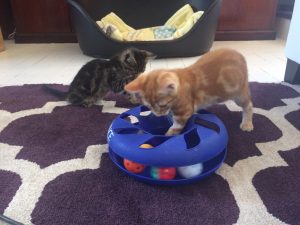
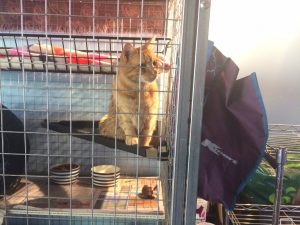
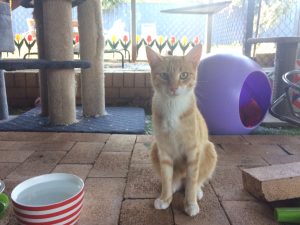
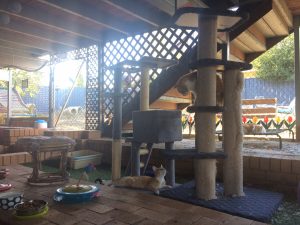
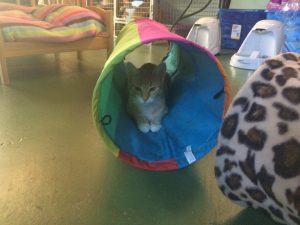
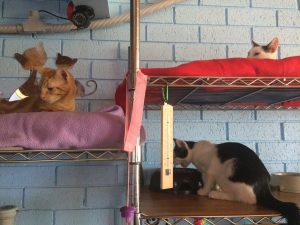





Be the first to comment!